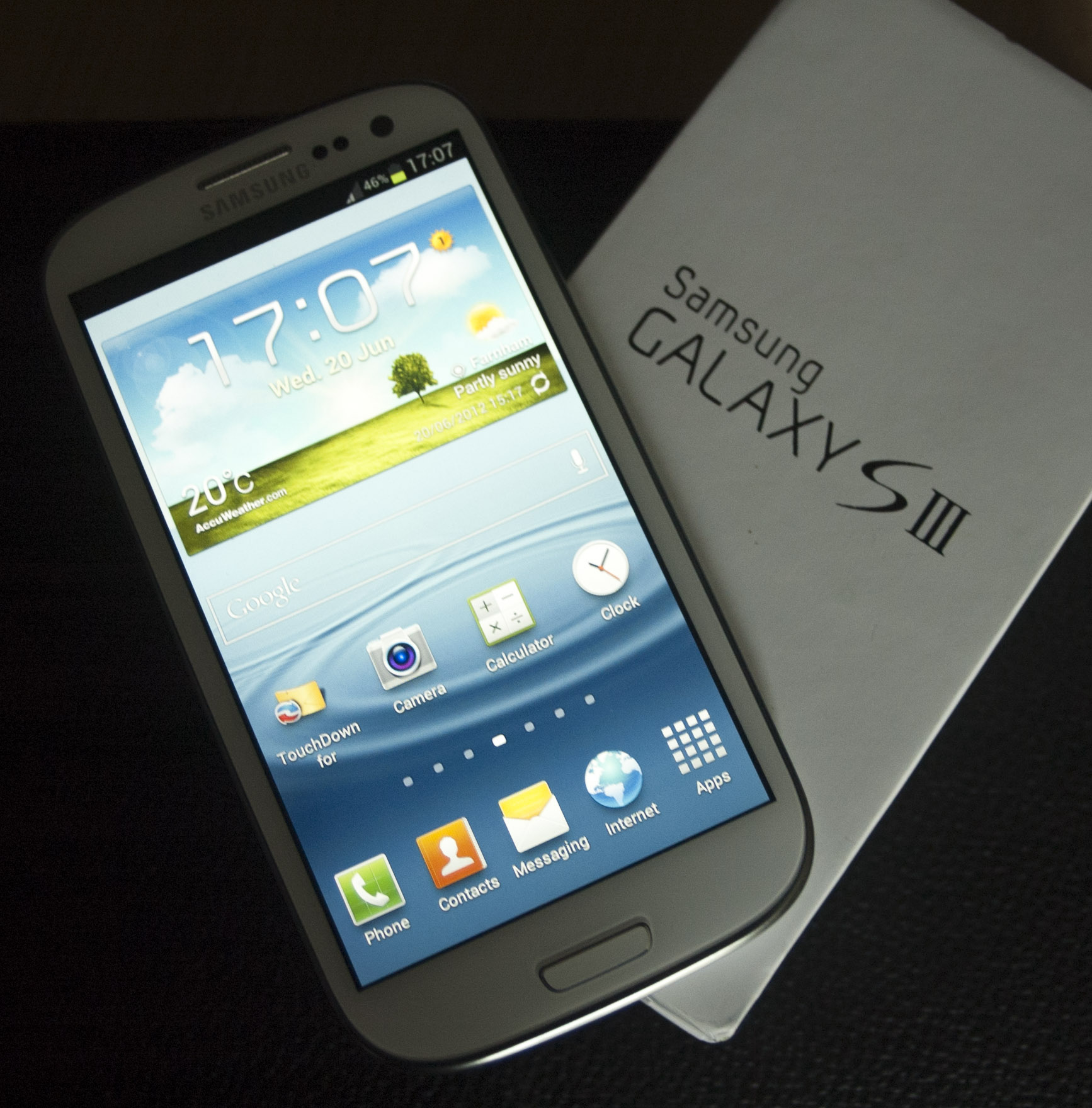
Samsung Galaxy S III HSPA+ hands-on review
I got my shiny new Galaxy S III about ten days ago -- my first phone upgrade for quite a while. Although I’ve been watching smartphone developments with great interest, I used my Nokia N900 for nearly three years. Nothing out there really looked much better. But suddenly the flagship phones of this generation seem to be a significant improvement over their predecessors.
So was it worth the wait? Absolutely. There are plenty of reviews which give you all the numbers. This is a personal account of what it’s like to use the beast for real (with my contract committing me to it for two years).
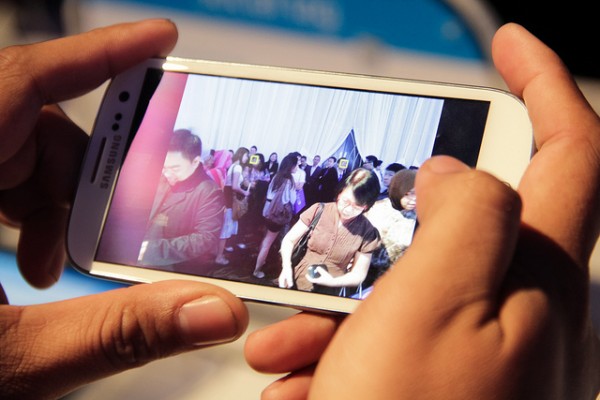
Rise of the quad star -- Samsung Galaxy S III [review]
Editor's Note: This is the first of two reviews we will run over the next day, as the first Galaxy S IIIs go on sale here in the United States. However, these reviews cover the international models, which offer faster processors but no LTE.
Starting at the end of May, Samsung is in the process of launching worldwide its new flagship smartphone, Galaxy S III, or i9300 as it's designated internationally. Customers in Europe get the HSPA+ (21Mbps download, 5.76Mbps upload) model, while those in the United States and Canada will get the LTE variant. So what’s it like to live with a Samsung Galaxy S III? Just awesome. I know that's a spoiler, but you must have expected it.
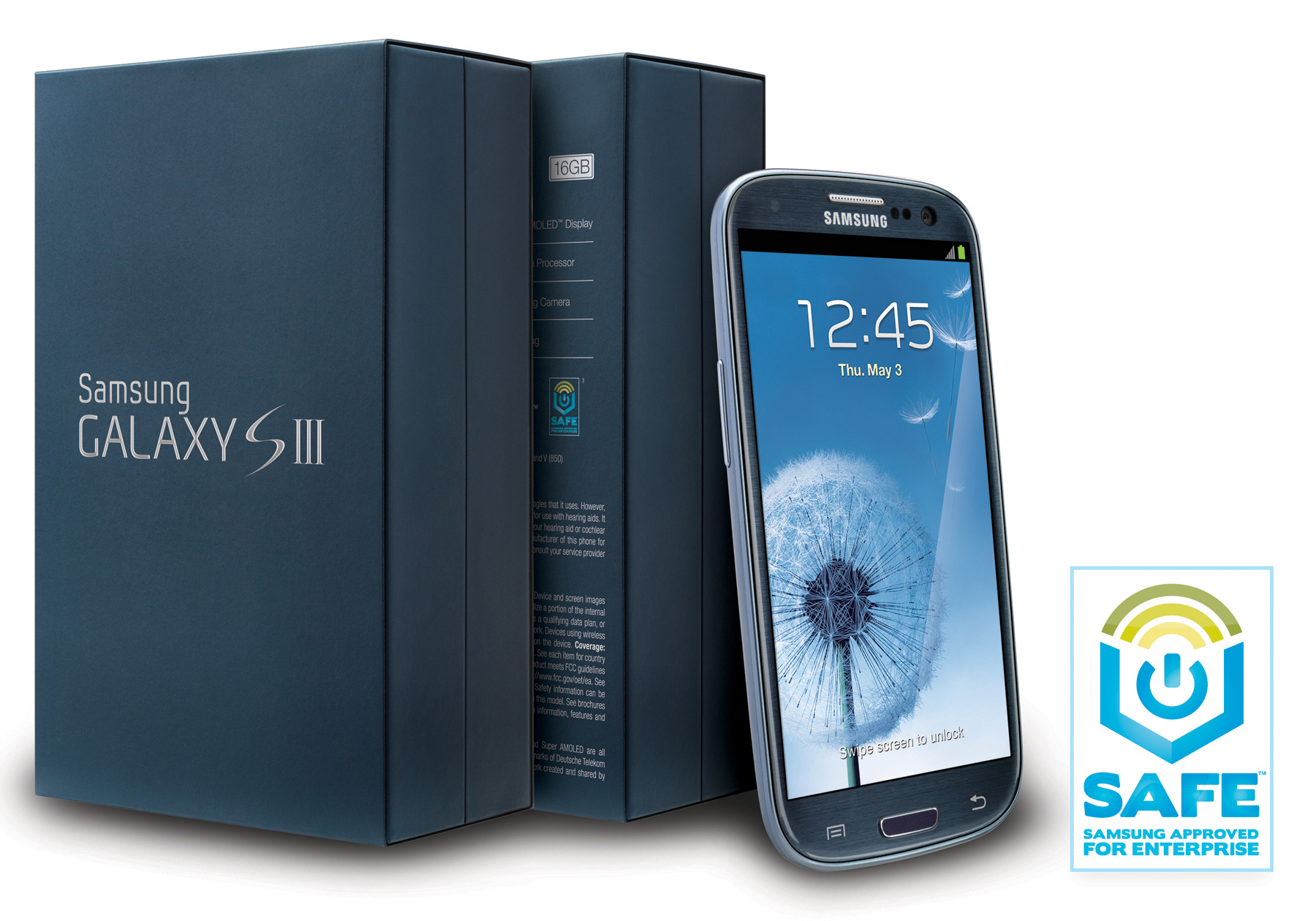
Samsung unveils new enterprise-safe Android brand, Galaxy S III first to sport it
In the world of Android-powered smartphones, Samsung is the reigning king. It sells approximately 40 percent of all the Android smartphones going to consumers today, and Forrester Research predicts proprietary Android builds (such as Samsung's TouchWiz) will actually surpass Google's Android ecosystem within three years. Of course, this fragments the market and causes trouble for developers and enterprises looking to create and deploy software for Android.
Monday, Samsung unveiled a new brand that will be applied only to Android devices that have been approved for enterprise use: SAFE, or "Samsung Approved for Enterprise." It's similar to Motorola's line of Enterprise Android devices called Motorola Business Ready, which debuted earlier this year.

Samsung Smart TV Cloud Gaming Powered by Gaikai and Nvidia [Video]
Hidden away in the middle of the concourse walkway between South and West halls of the Los Angeles Convection center sits this little corner display booth. Most people pass it by not knowing how big it might be to the future of gaming but as soon as I see who is there I have to stop and ask questions.
Gaikai is a service that started just two years ago -- at first thought of as nothing more than phantom console level vapor it is one of the two companies to announce "Cloud Gaming"; PC gaming via virtualization. Its first demo shows off high-end games from producers / developers EA and Red Project for titles like Mass Effect 3 or The Witcher 2. Using a web page Java applet client it runs on any Windows, Mac, or even Linux machine.
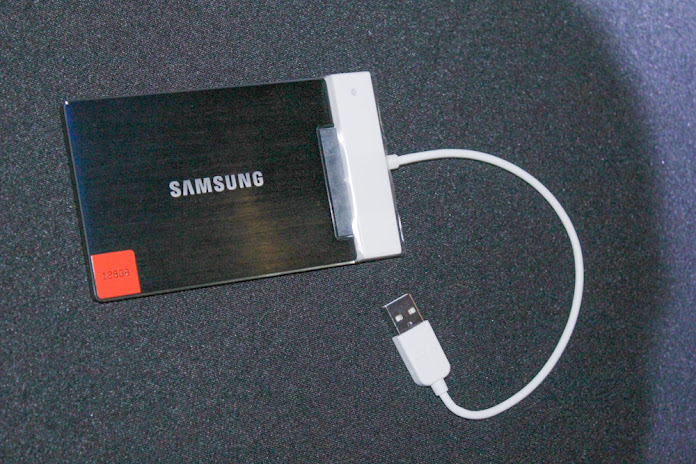
Smasung SSD might give you a Ghost of a chance
In the crowd of hungry tired worn-out journalists at the Showstoppers Tech and Gadget showcase event at the Icon LA Ultra Lounge, right next to a Hooters, across the from the Los Angeles Convention Center, Samsung, like everyone else, isn't showing off anything new. But the particular bobble they have that catches my eye is the Samsung 830 series solid-state drive, released back in October of 2011. It is a sleek little gun-metal black drive thinner than 1/5 of an inch and no weight to it whatsoever. The case is a gun metal brushed aluminum with only the silver raised logo of Samsung emblazoned on it.
This is when I strike it up with Chris Geiser, senior product management at Samsung. Geiser is passionate about the product. He lets it drop that, "Samsung is now spendings $12 billion a year on memory research". Every SDD samsung makes is 100-percent Samsung made parts, from the NAND storage memory to the controller.
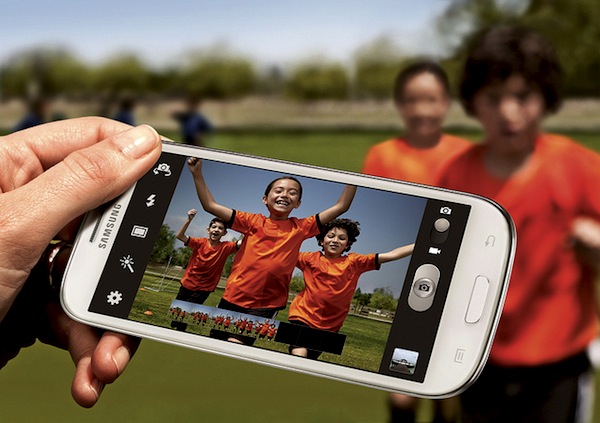
Okay, Americans, Samsung Galaxy S III preorders start this week from major carriers
If you're ogling Galaxy S III and thinking "I want", perhaps you should be asking "i what?" Galaxy S III arrives on these shores from all major carriers this month. As for iPhone 4S, well, whatever. Preorders start tomorrow (from Sprint, T-Mobile); June 6 (from Verizon).
But to get lower-cost, subsidized US models, many buyers will gain in network connectivity but lose in raw processing power. US models, also from AT&T, Sprint and US Cellular, are dual-core -- not the quad-core beauts shipping overseas. To get one those babies, unlocked, expect to plunk down at least $650. US, locked, contractual commitment S3s start at $199.99.
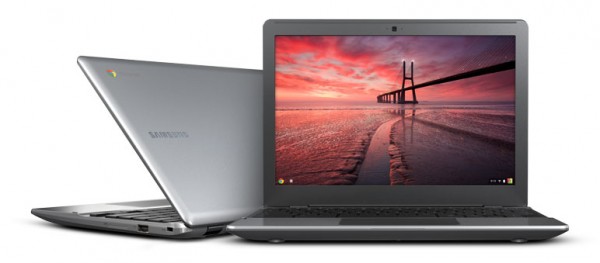
Samsung Series 5 550 Chromebook is good enough for you
I enjoyed occasional point-counterpoints with Scott Fulton when we worked together at BetaNews. Unexpectedly, I find myself in position to rebut him working somewhere else. It's something I rarely do, but in this case must. Scott's "Why the new Chromebook still doesn't cut it" asks but fails to answer many questions -- it's a FUD (fear, uncertainty and doubt) piece. Clearly from those questions, and most everything else about the post, Scott hasn't used the new Chromebook Google and Samsung launched two days ago. Had he, no reporter of his vintage and experience could so dismiss the laptop in such manner.
The first question Scott should have asked: Why do so many tech writers who last year dissed Chromebook praise its successor? CNET's Scott Stein doesn't love the Chrome OS followup, but most other tech writers heap praise -- and for a reason. Samsung Series 5 550 Chromebook is good enough for everyday computing. Most "actual consumers and businesses", as Scott describes them, will find the computing experience satisfying, though I wouldn't say that Chromebook is for everyone. But it could be for most anyone, with caveat really being Microsoft Office. Do you require it? The answer will be yes for businesses dependent on back-end Microsoft server software leveraging Office on the desktop.
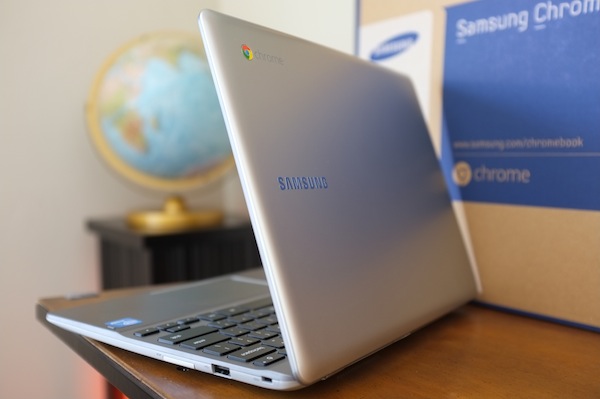
Is Samsung Chromebook Series 5 550 worth spending $549?
Google and Samsung couldn't have done more to hide the second-generation Chromebook and new Chromebox during Consumer Electronics Show 2012 in January. They're cloaked no longer, as I explain in my "Samsung Chromebook Series 5 550 first-impressions review". The products launched today, and they're worth a look. But is the new Chromebook worth buying?
Everyone should ask first about performance, because by the specs Samsung's new Chromebook is an under-performer -- Celeron processor in an Core i-processor world. But there are different measures of performance, and only one really matters: Is it good enough for what it's meant to do? I partly answer the question in my review, but the topic is so important for this computer I've dedicated another post just to it. Quick answer: Performance is good enough. However, price-performance is another matter.
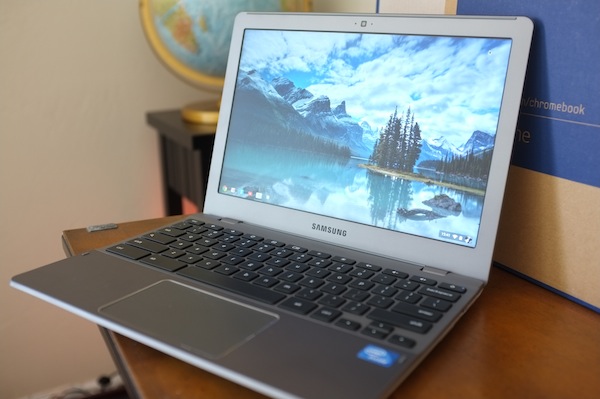
Samsung Series 5 550 Chromebook first-impressions review
Today, Google and Samsung officially launch the second-generation Chromebook, starting with the Series 5 550, which like its predecessor comes in WiFi-only and 3G combo models. I had the pleasure of using the new Chromebook for the past week as my only PC. The overall user experience is surprisingly satisfying and refreshing. In a computer market dominated by Mac and Windows, Chromebook is freedom from duopolies that define the experience within walled gardens and around desktop applications. But changes introduced with Chrome OS 19 make the user experience much more desktop-like, as Google cedes some of the browser motif for familiarity and usability, with multitasking being high among the reasons.
If you read no further, the answer to your question is this: Yes, you can use Chromebook Series 5 550 as your primary, and only, PC. Google has succeeded offering online and offline capabilities balanced to most computing needs, while keeping cloud benefits primary but seamlessly integrated. For two months last summer, I used the original Samsung Series 5 Chromebook as my primary PC, in the first weeks and as my only one later on. I'll repeat the experiment at least through the end of June, and I might not go back -- strange, considering new OS X and Windows versions debut within months. That commitment says much about my positive first impressions.
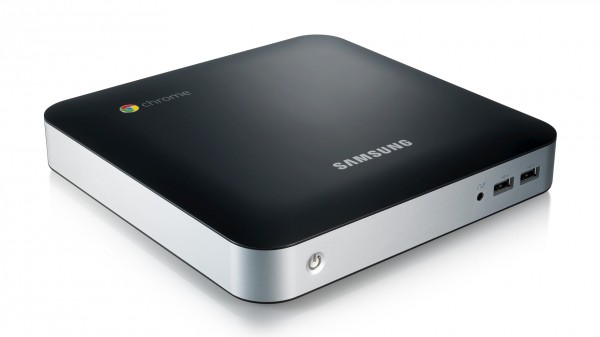
Meet Samsung Series 3 Chromebox
Chrome OS is taking up new residence. Today Google and Samsung launch Chromebox, a Mac mini-like computer to which buyers attach keyboard, mouse and monitor. The idea isn't novel: Users keep their existing peripherals while upgrading hardware and migrating to a spanking new operating system. For anyone looking to get off the OS X or Windows train, Chromebox proves to be an affordable alternative running Google's browser-boasting, cloud-connected Linux-based OS.
Samsung Series 3 Chromebox joins Samsung's second-generation Chromebook, the Series 5 500, also launched today, and it's a bargain by comparison -- $329 versus $449 for WiFi-only laptop and $549 for 3G combo. The chromebox also sports a faster processor, 1.9GHz vs 1.3GHz for Chromebook. The cloud-computing device, now with loads of local functionality and storage, is well-suited for educational institutions and small businesses.
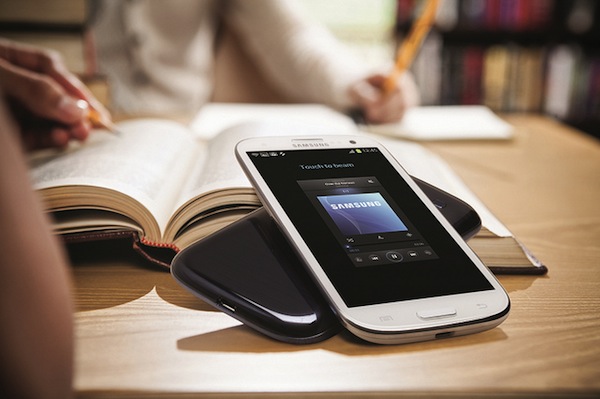
Why aren't you reading this story on Samsung Galaxy S III?
If you live in parts of Europe, the Middle East or Asia, arguably the hottest smartphone on the planet is selling out fast, and, whoa, it's not iPhone 4S. May 29 dawned on the continent to a new day for Samsung smartphones and sunset for Apple's flagship, which is oh-so similar to the one released in early 2010. Buyers looking for freedom from the walled garden or simply stunning software innovation can choose to "think different", borrowing the long-discarded Apple marketing phrase.
Twenty-six days ago, I asked: "Is iPhone 4 obsolete?" Nearly 2,000 of you answered "Yes" -- that's 65 percent -- by saying you will buy Galaxy S III. Now remains the question: How many of you planning to buy, really will do so?

Who will buy Samsung Galaxy S III?
Samsung starts selling its third-generation S Series smartphone next week -- May 29, although some locales are expected to get it a day earlier (if not sooner). Our BetaNews poll, "Will you buy Samsung Galaxy S III", has enough responses -- 2,361, as I write -- to report results. Cut to the point: 36.59 percent of you won't buy the S3. At least among our tech community, there is huge interest in the smartphone, which is now available for preorders here, including Amazon.
Some of you have preordered, or will do so: 15.37 percent. Another 32.57 percent plan to order within 3 months and 9.45 percent within 6 months. Those willing to wait are likely to pay less, as national cellular carriers offer Galaxy S 3, albeit locked. The pricier, unlocked models are carrier and contract free. The poll results corroborate last week's report of 9 million preorders. In the United Kingdom, Carphone Warehouse reports strong preorder demand for the S3.
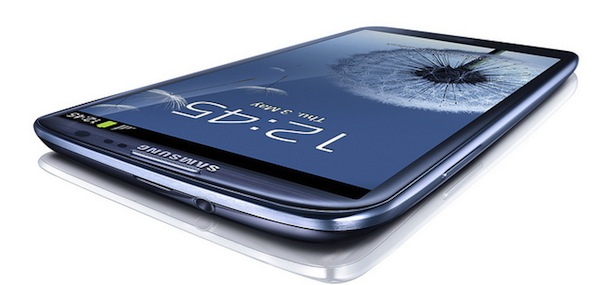
iPhone meets its match
Finally, initial sales of another smartphone smoke iPhone -- that is if leaked numbers prove true. Samsung Galaxy S III goes on sale in 11 days, but preorders reportedly already top 9 million. By comparison, the much-lauded iPhone 4S sold 4 million units, including preorders, during its first three days of availability. At this pace, Galaxy S III is poised to be the biggest smartphone launch to date.
Samsung announced the smartphone on May 3, when I asked: "Is iPhone 4S obsolete?" Surely someone thinks so, and their answer should chill the hearts of Apple apologists and investors. Samsung, not Apple, is the rising star in the cloud-connected device firmament. Perhaps iPhone 5 will change matters. But for now, Samsung, propelled by the Galaxy S brand, broad channel distribution and smart software innovation, is brightest star.

Samsung accounts for 40% of Android smartphone sales
The figure is so important, I'm breaking it out from the long analysis posted mid-afternoon about the smartphone market consolidating around Apple and Samsung. The South Korean electronics giant is doing to Android on smartphones what Amazon does on tablets: Hugely fragment the market around a forked operating system. I warned about this three weeks ago in post "Google has lost control of Android". Now there is sales data to back it up.
Earlier today, Gartner released first quarter sales data for global handsets. Not shipments into the channel, but actual sales to end users. Market leader Samsung accounted for 40 percent of all Android smartphone sales, with no other manufacturer topping 10 percent. Sure Samsung's success lifts overall Android smartphone share -- 56.1 percent up from 36.4 percent a year earlier. But what's good for Samsung isn't necessarily in the best interests of the broader Android ecosystem.
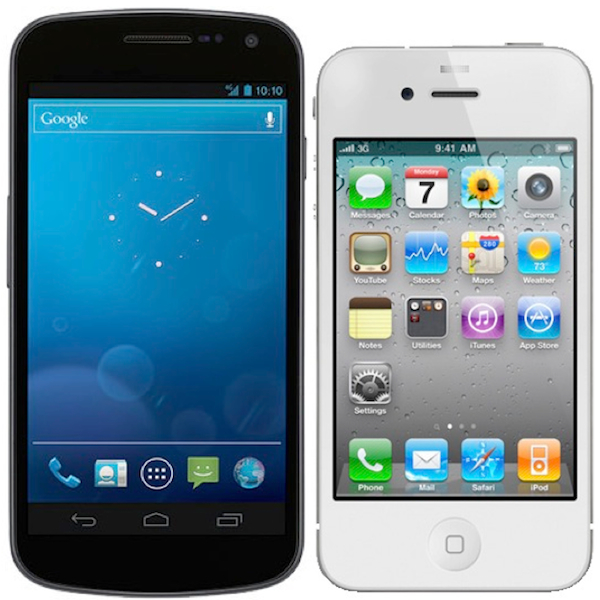
Smartphone market consolidates around Apple and Samsung
Today, Gartner put to end weeks of cellular handset debate. Apple apologists disputed Samsung's smartphone success over iPhone -- the presumption that the South Korean electronics giant benefits from greater shipments vs actual sales. Make no mistake: Samsung is the global leader overall and in the smartphone category, based on actual sales. Apologist arguments be damned.
That said, Apple's position is solid. Together, Apple and Samsung combined smartphone sales market share approaches 50 percent. Contrary to speculation that Windows Phone might appear as a third dominant mobile OS, the market is set to largely split between two vendors. As I explained three weeks ago in post, "Google has lost control of Android", Sasmung's rise isn't necessarily good for the broader ecosystem.
